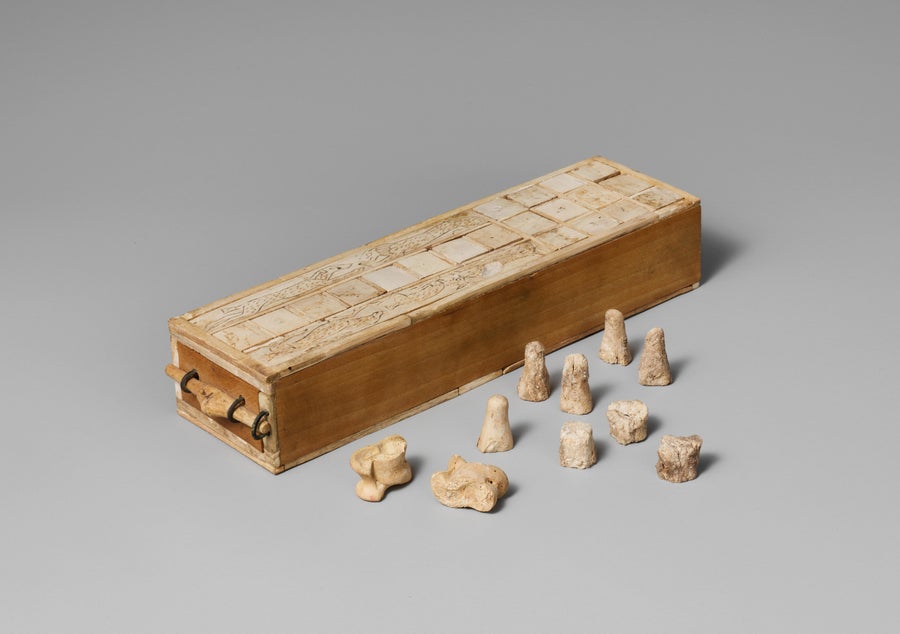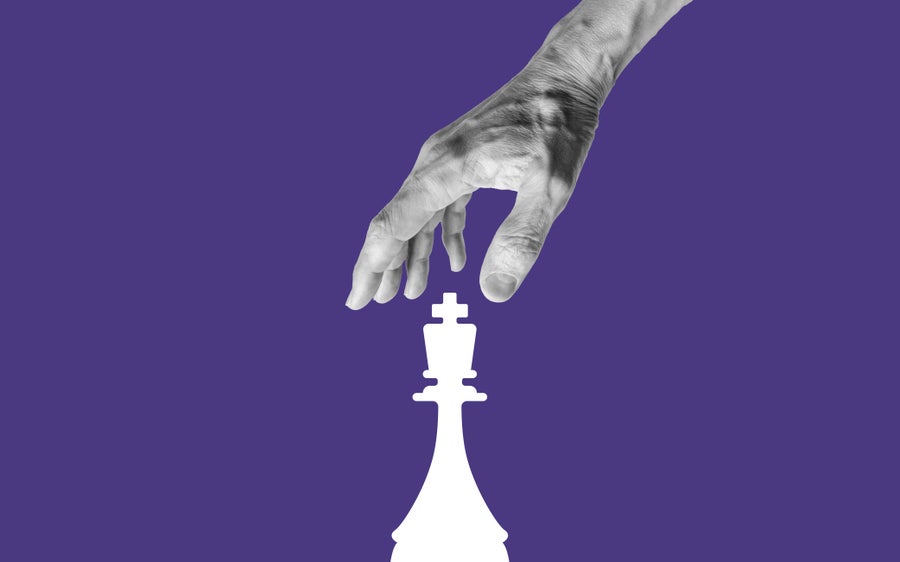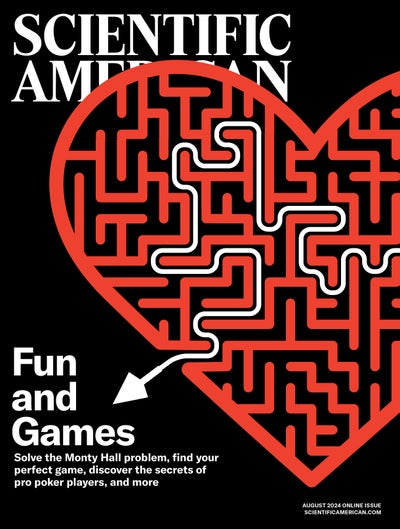Don't miss out on this special issue packed with fun and learning!
| | | Dear Friend of Scientific American,
We are having a lot of fun with our "Fun and Games" summer online issue. Have you ever struggled to understand or explain the Monty Hall problem? The puzzle asks whether you, as a game show contestant, should keep the door you've chosen or pick a new one after the host shows you that one of the three doors has a dud gift behind it. A lot of mathematicians have gotten it wrong. Our interactive story lets you play from a contestant's perspective and a host's. When I shared the story on social media, my favorite response was from someone who said, "I finally get it!" (Isn't that a great feeling? When something is confusing and then you get it? I love that feeling.)
The issue has a delightful and beautiful list of board games throughout history, some of which you can still play today. It's so humanizing of the past to know that people have been playing board games for many thousands of years. And games have had a surprising influence over history. The invention of dice led to probability theory (as well as new questions about the whims of God), and probability theory led to the scientific revolution. The rules of games can influence how we behave, whether it's on the game board or in real life. And live-action role-playing games can be empowering.
In baseball, the average fastball speed has increased by two miles per hour in the past two decades, and the number of 100-mile-per-hour pitches has quadrupled. In poker, pro players know what the optimal strategy is—it's based on the Nash equilibrium—but they don't always use it.
This interactive quiz can help identify the best games for you. And enjoy these classic Martin Gardner Mathematical Games columns on card tricks, flexagons, probability paradoxes and Möbius strips.
Our special issue has its own science-themed crossword. We soft-launched a new games section this month with spellements (create as many words as you can), quizzes, jigsaw puzzles and short crosswords. Enjoy all this and more with our special offer: 60 days of unlimited digital access for $1!
With best wishes for a fun summer,
Laura Helmuth
Editor-in-Chief
Scientific American | | | | | | | | | | Special Digital Issue Highlights | | | | | | | | | | | | | | | | |
| | | | | | | $1 for 60 Days | | Get digital access to the latest research, ideas and knowledge in science. | | | | | | | | | |  | |
To view this email as a web page, go here.
You received this email because you opted-in to receive email from Scientific American.
To ensure delivery please add chiefeditor@scientificamerican.com to your address book.
Unsubscribe Email Preferences Privacy Policy Contact Us








Comments
Post a Comment